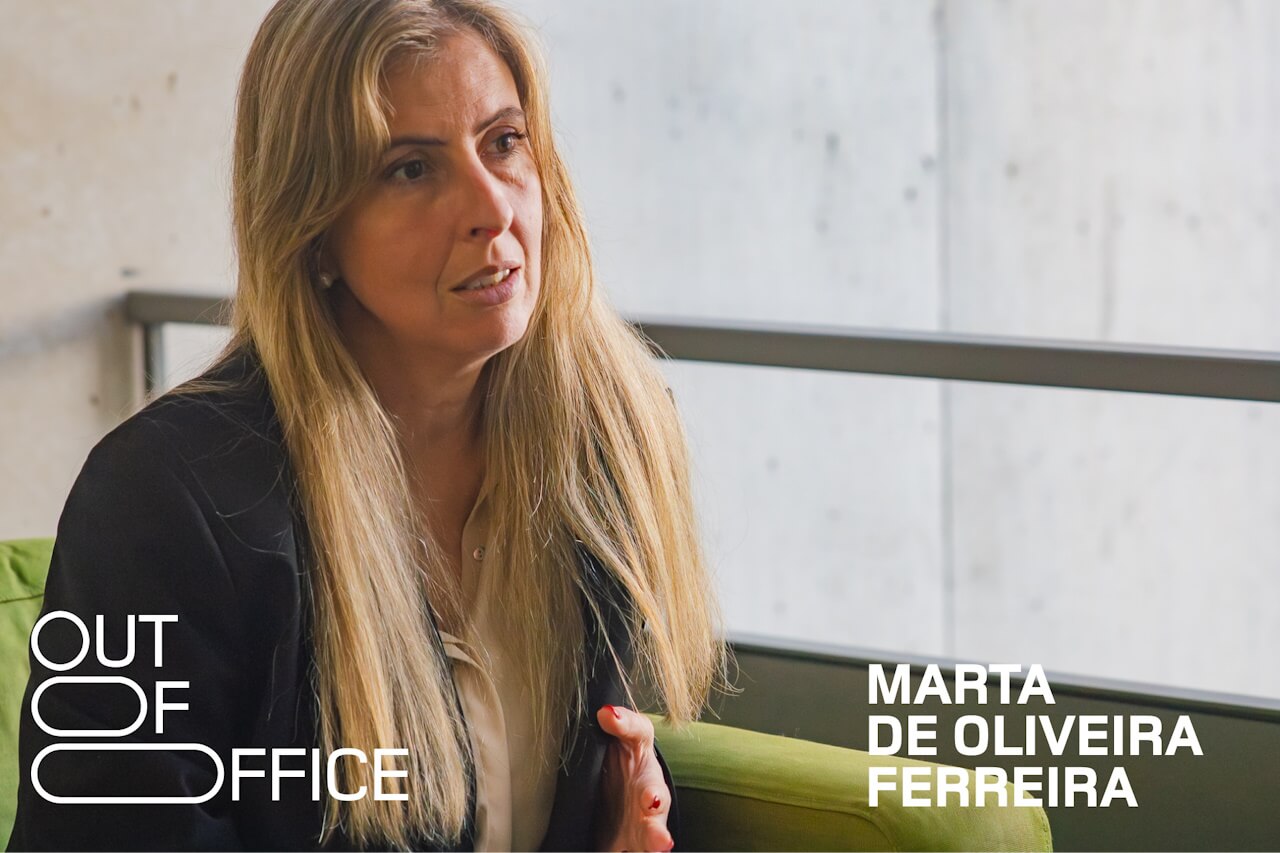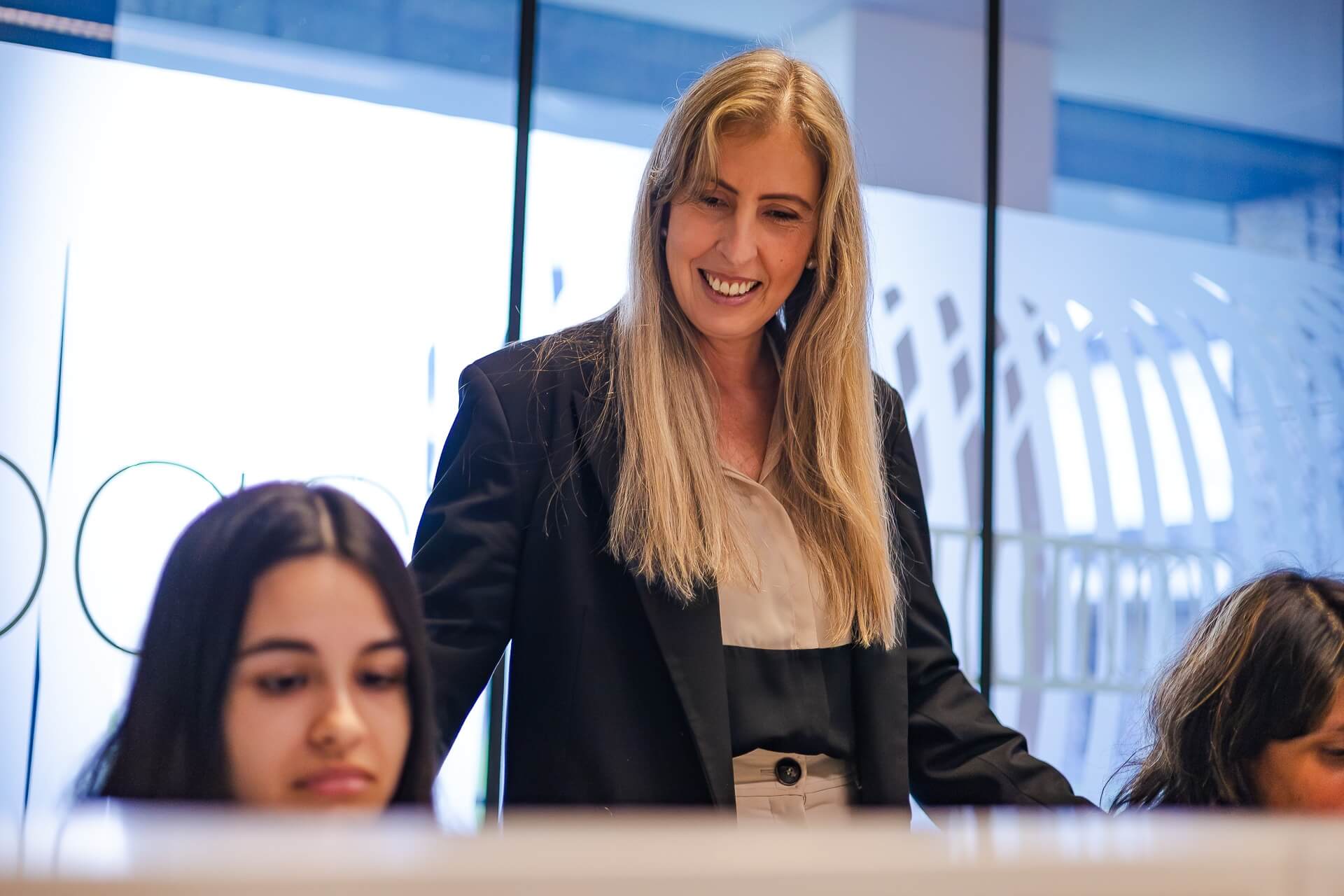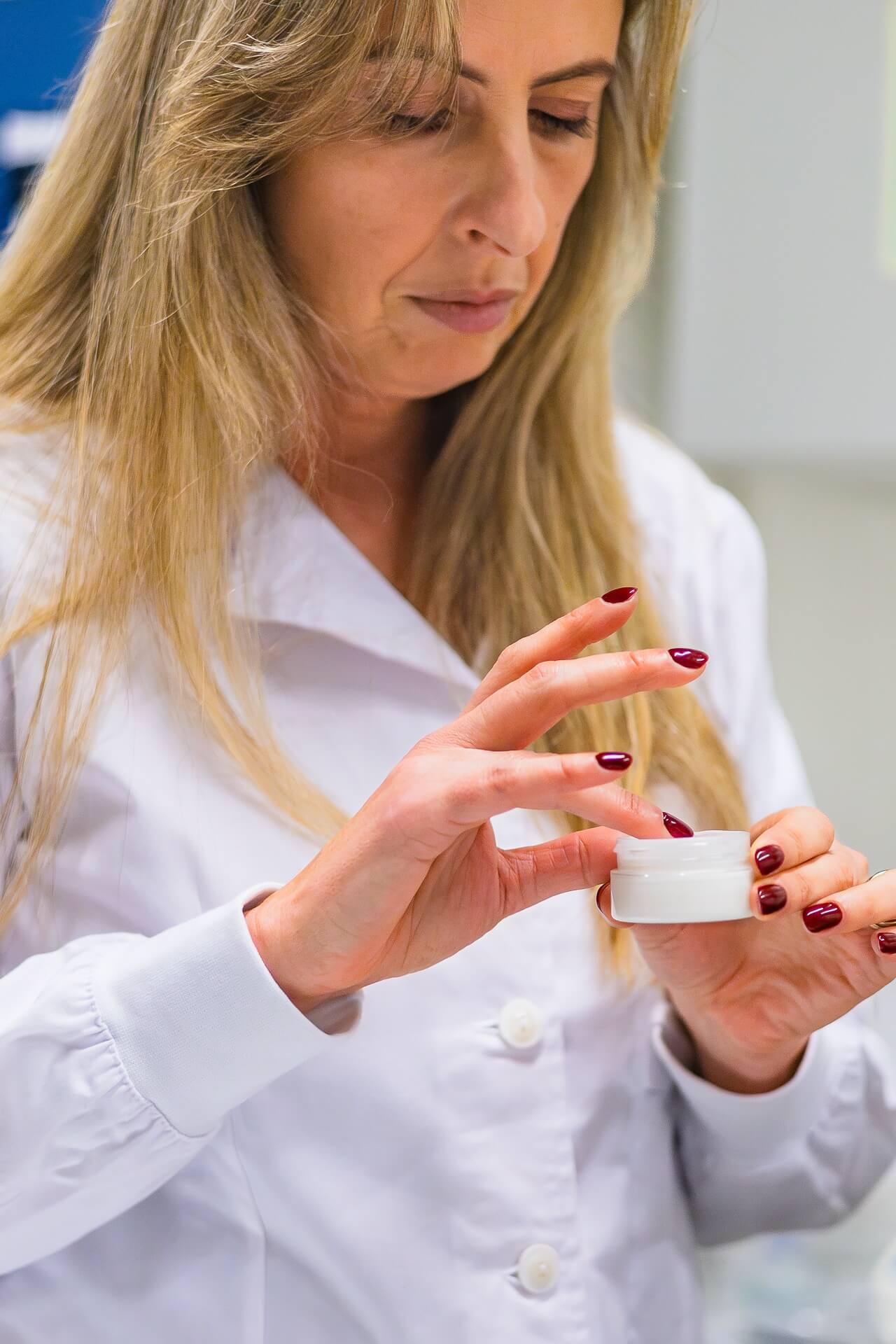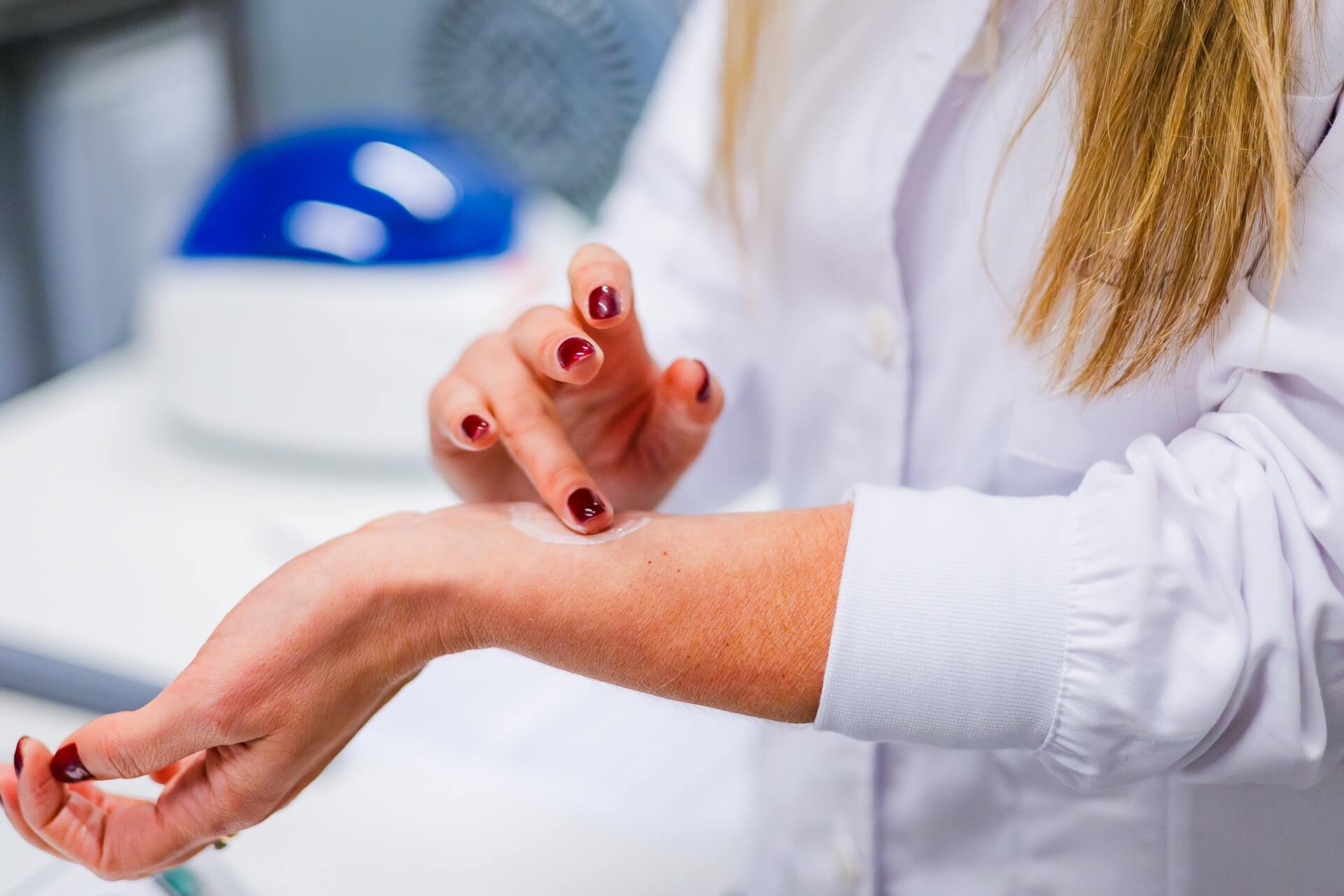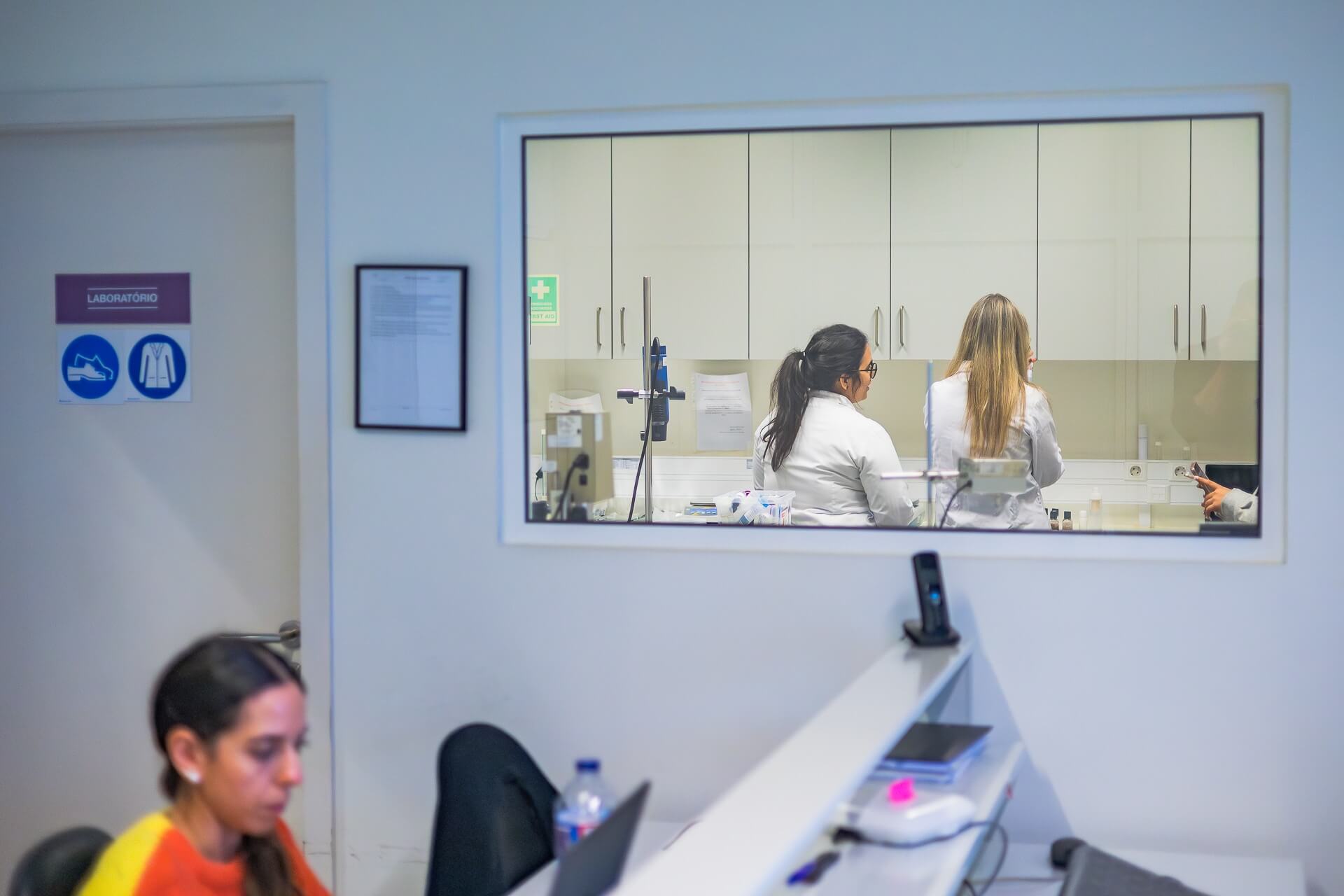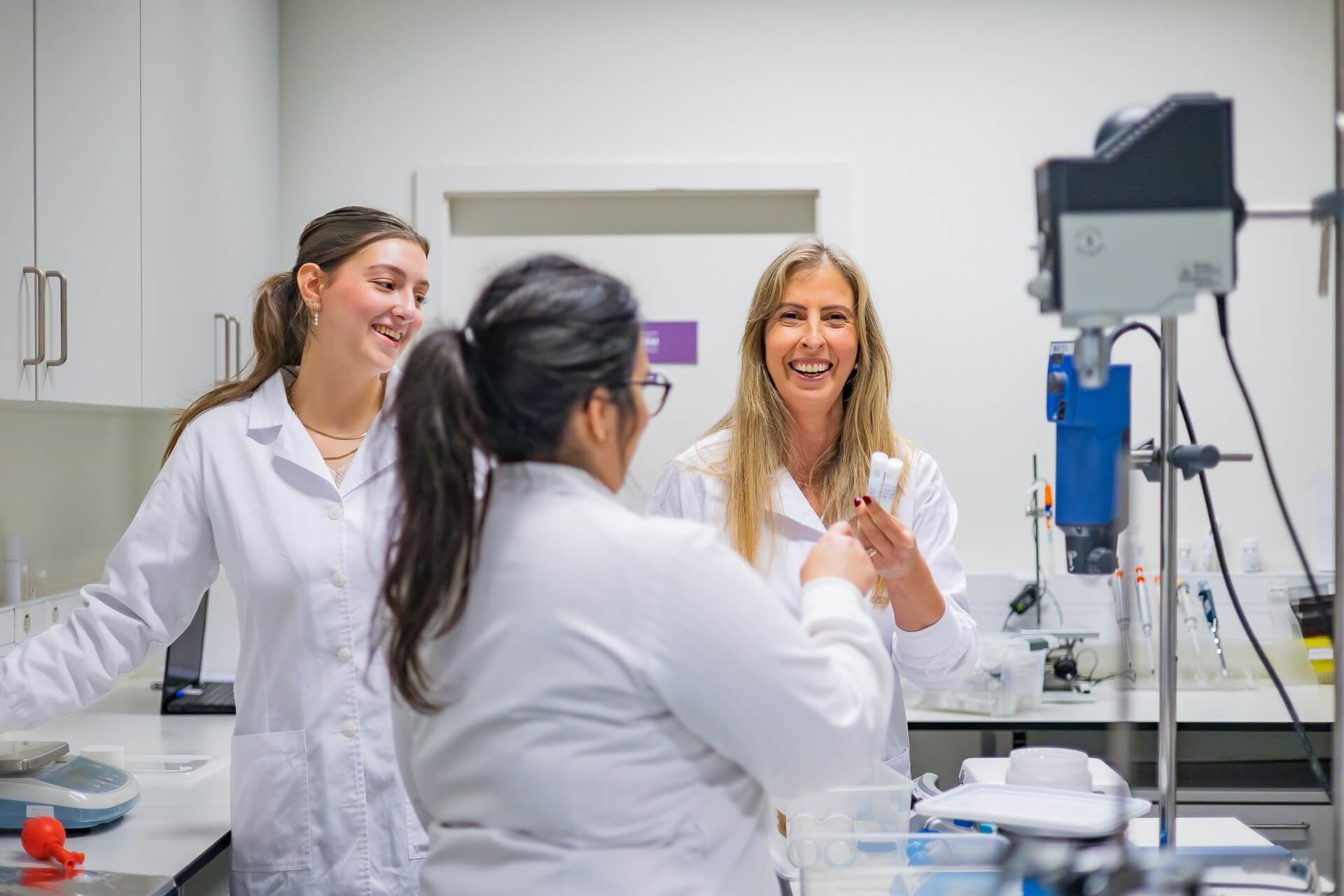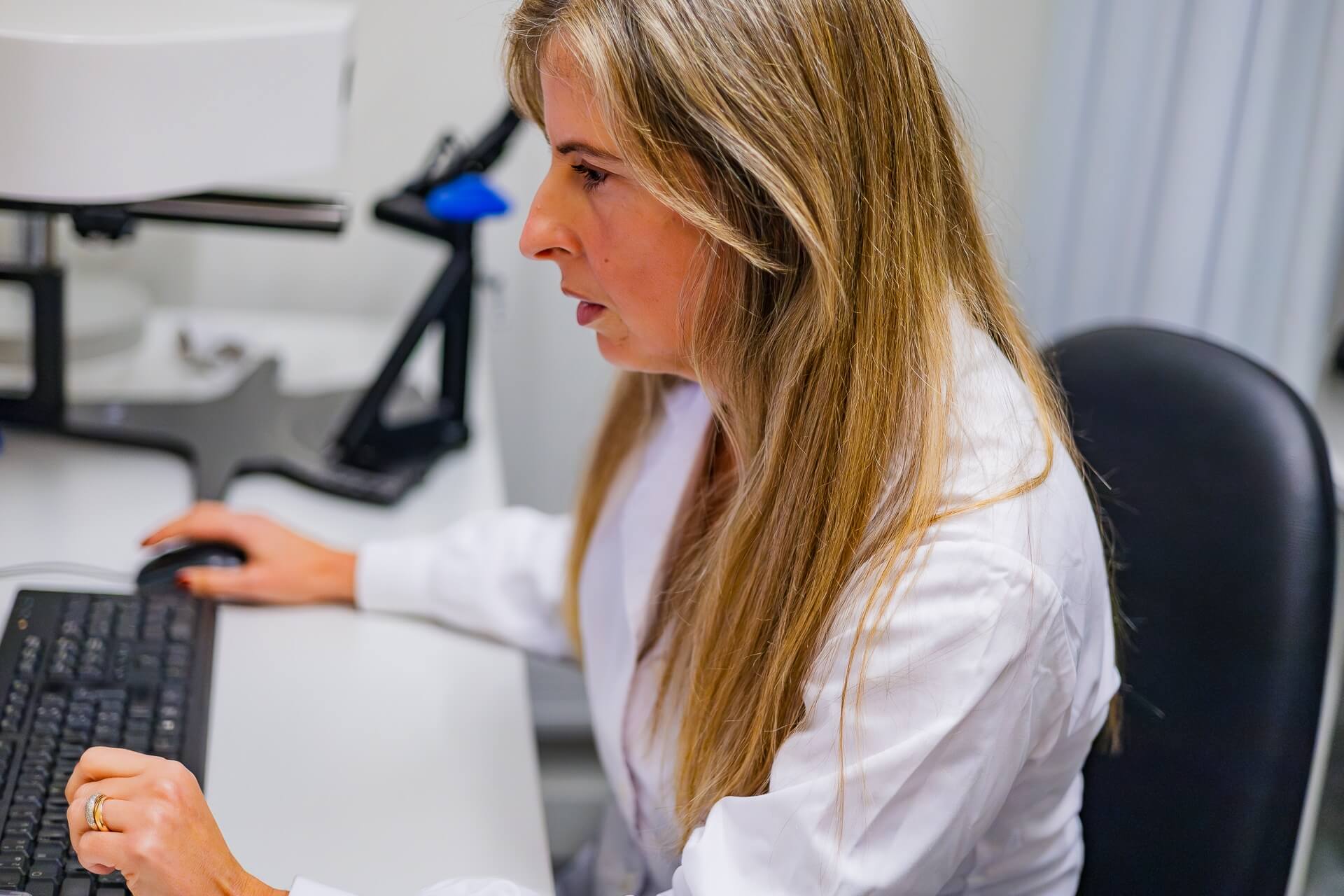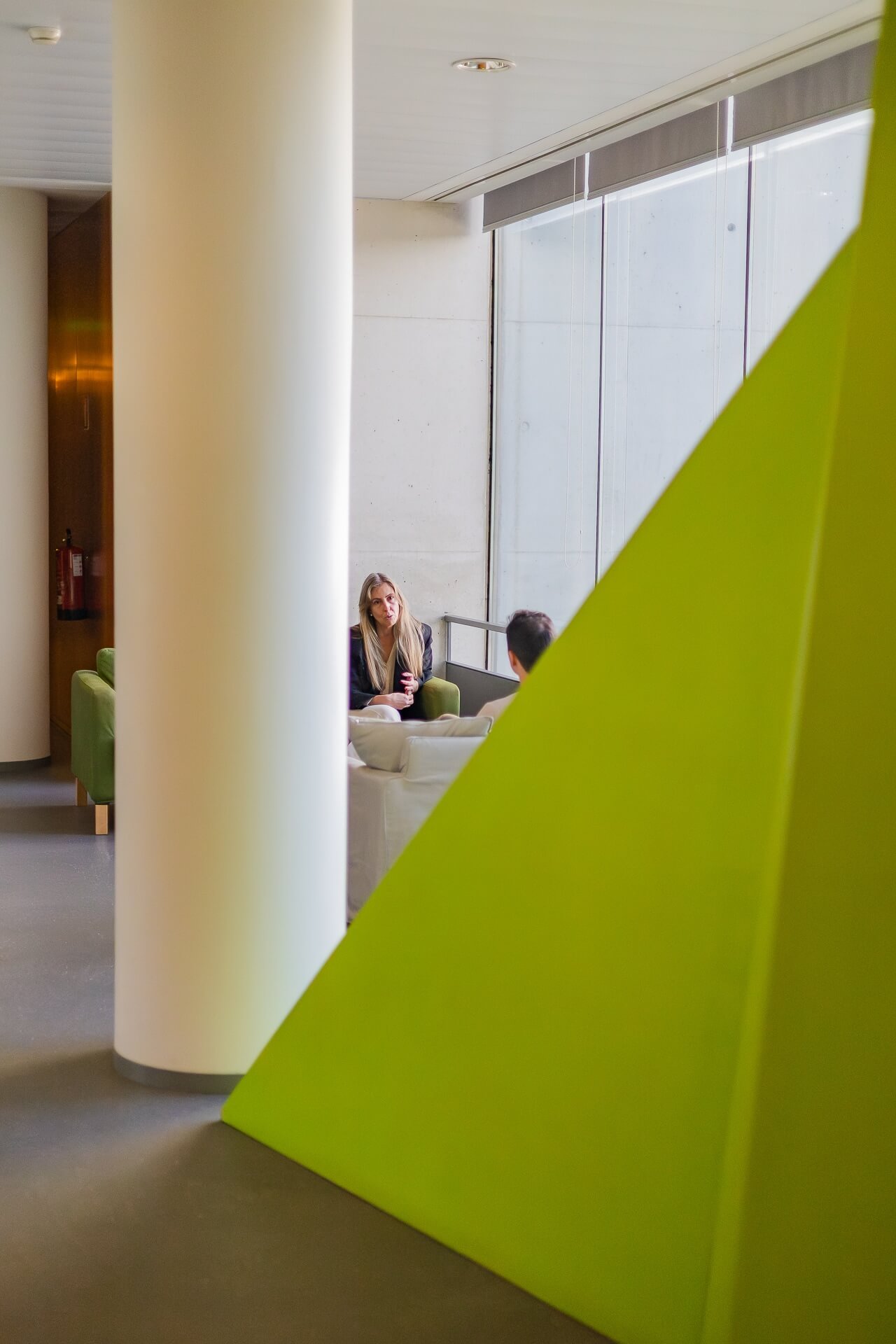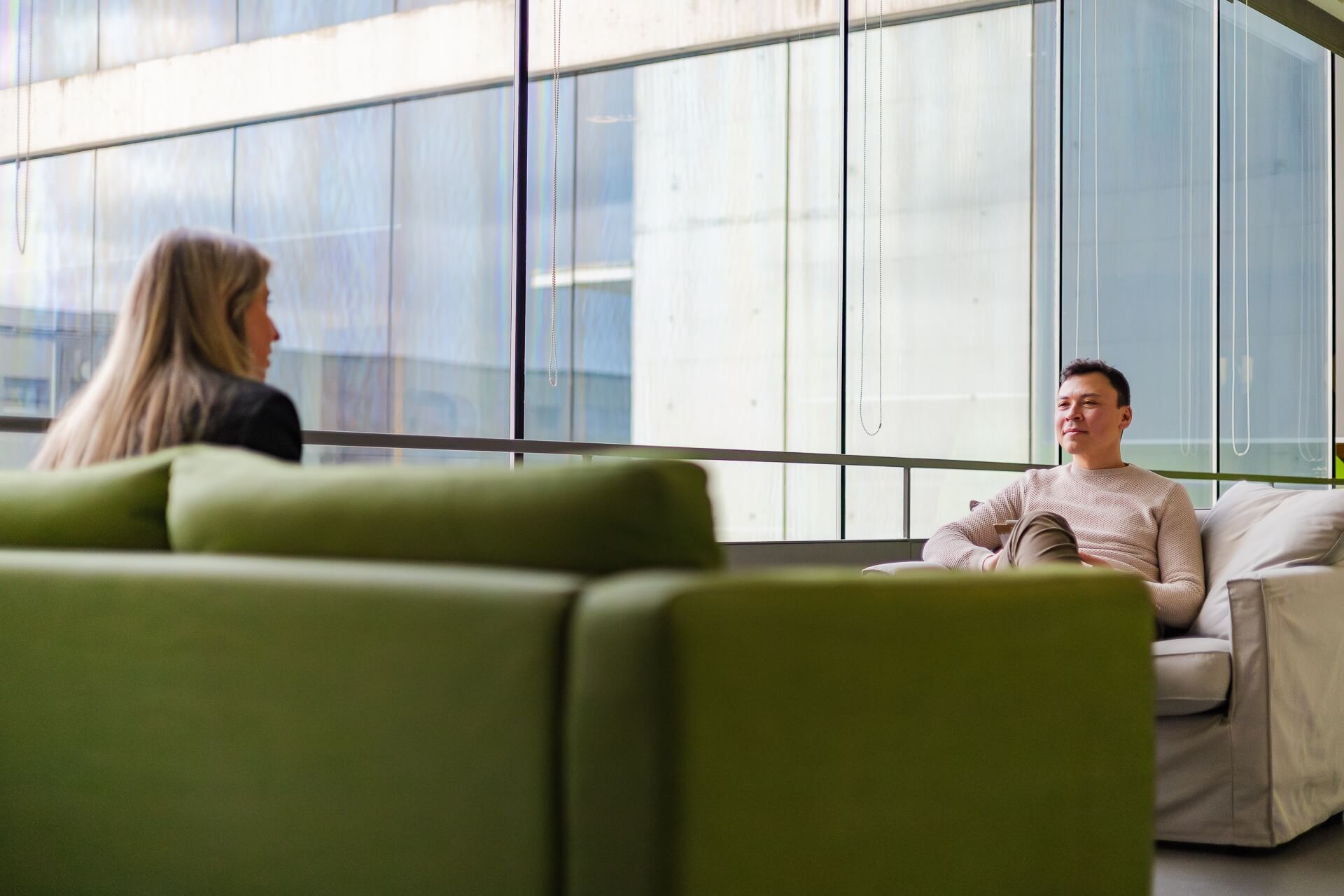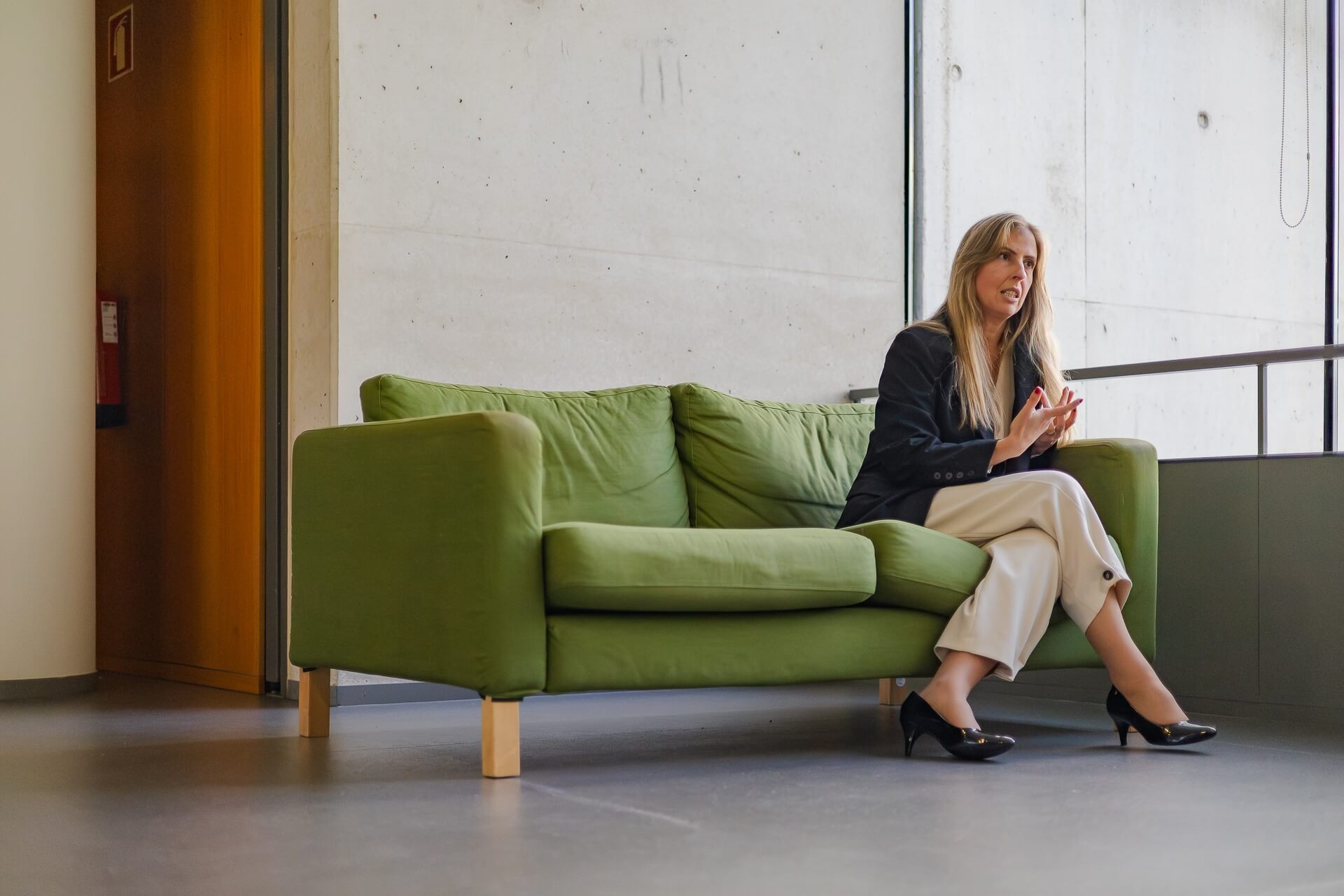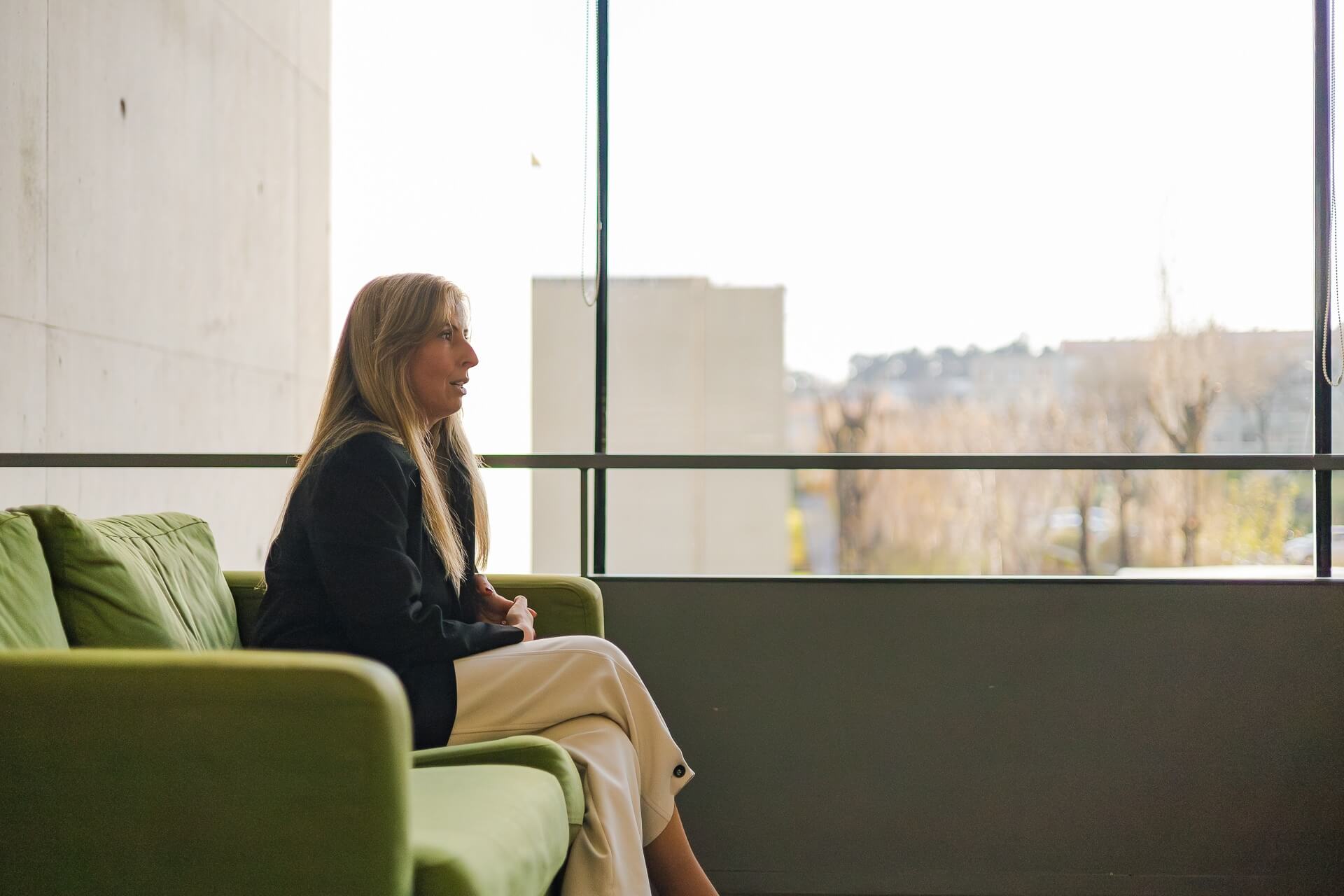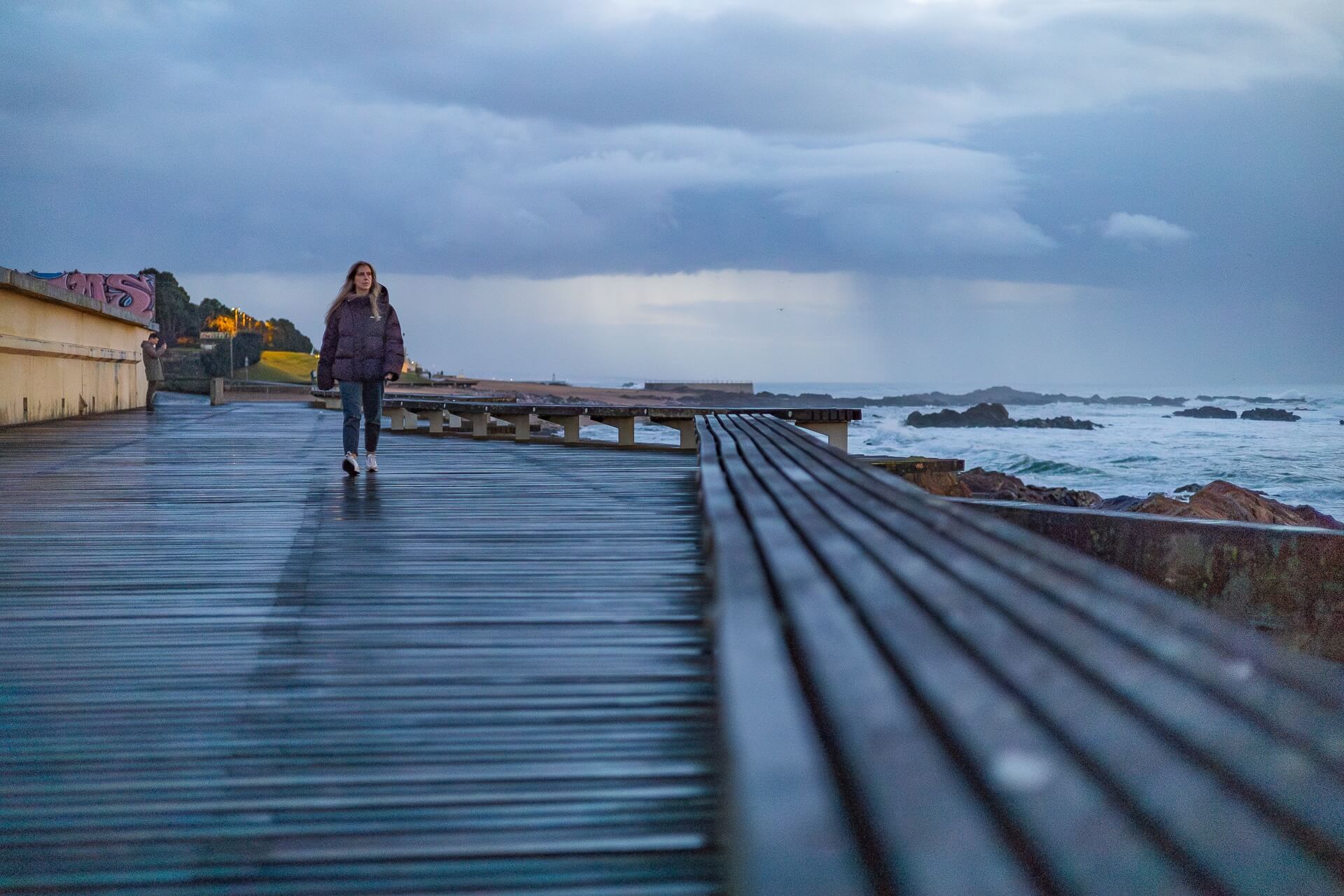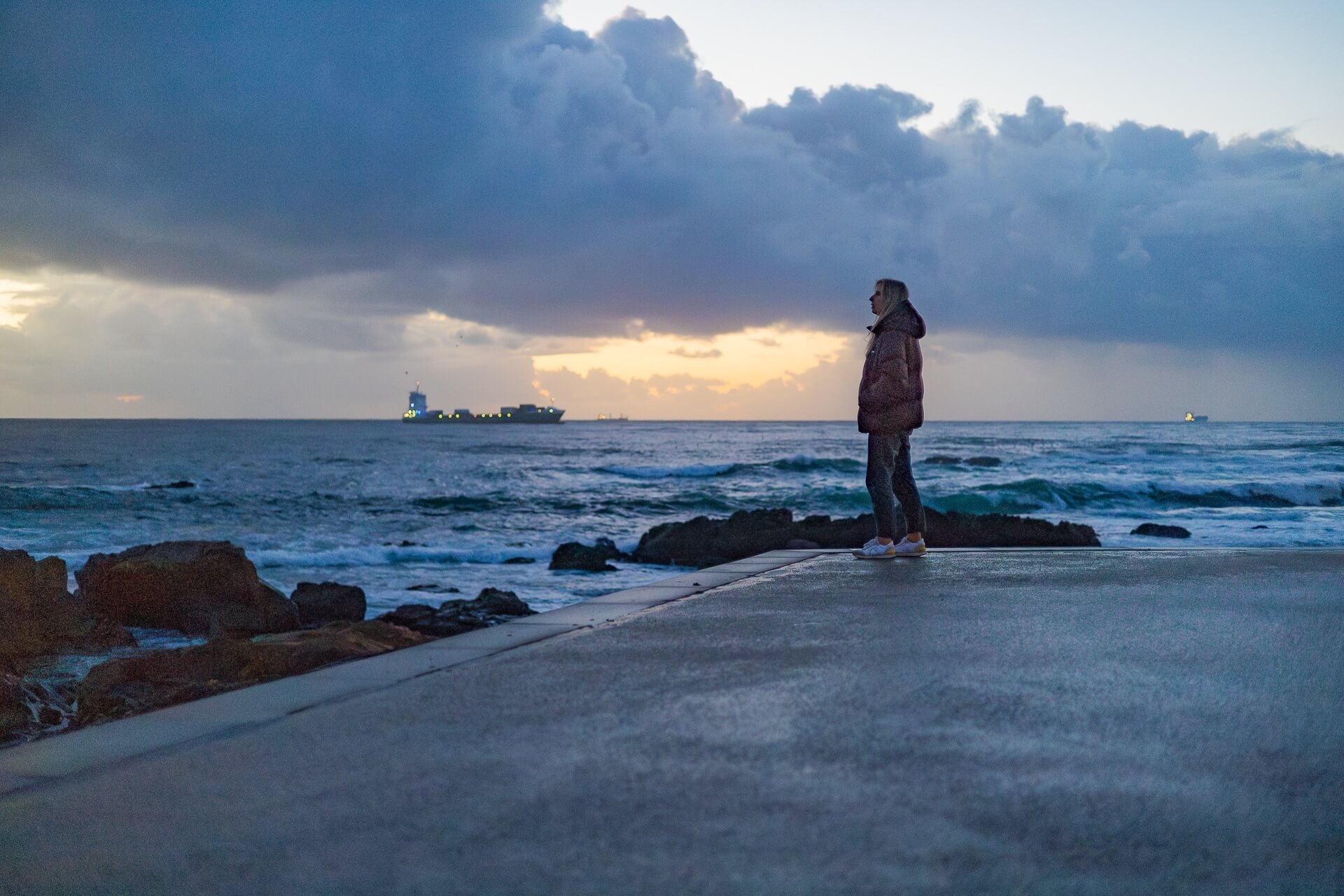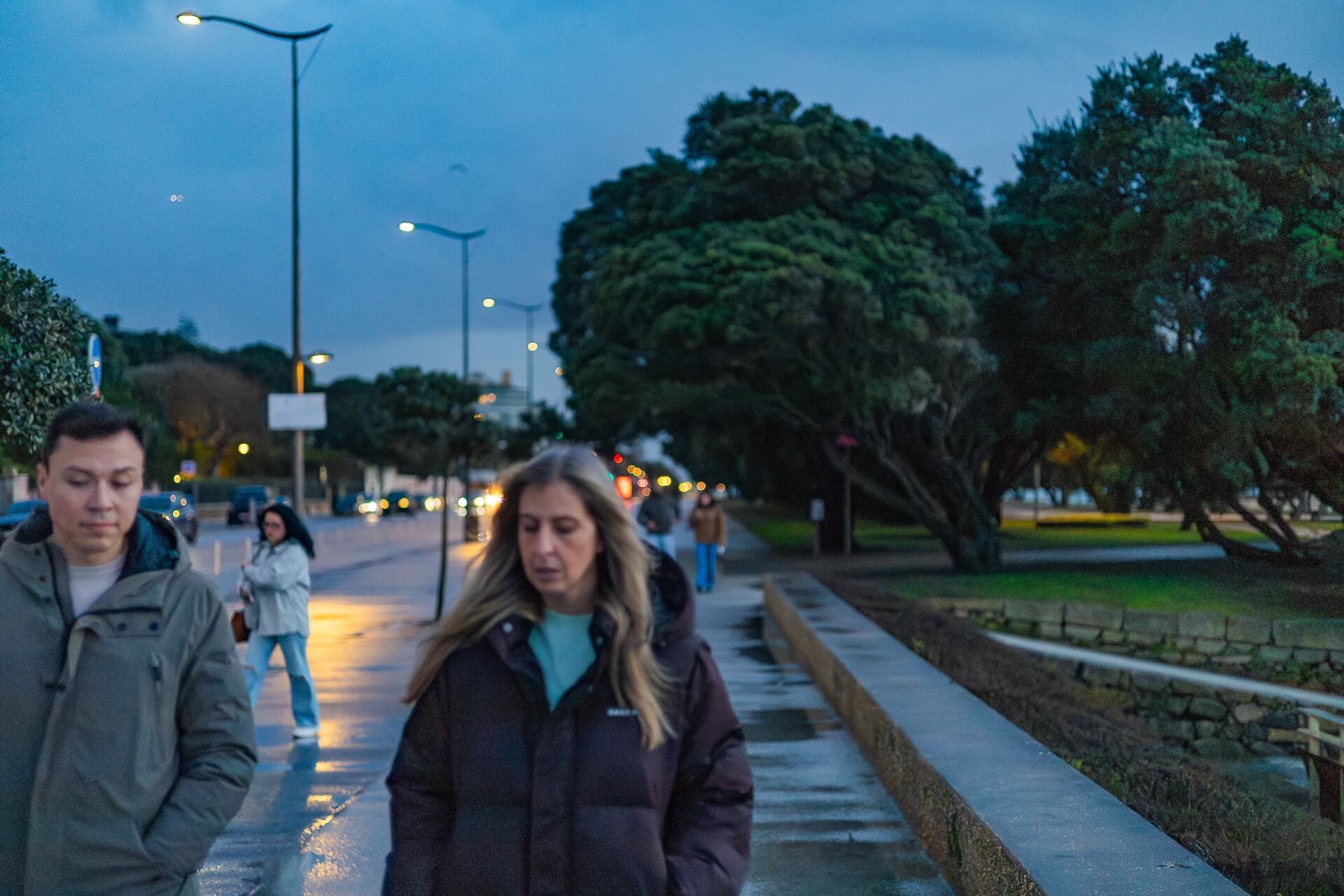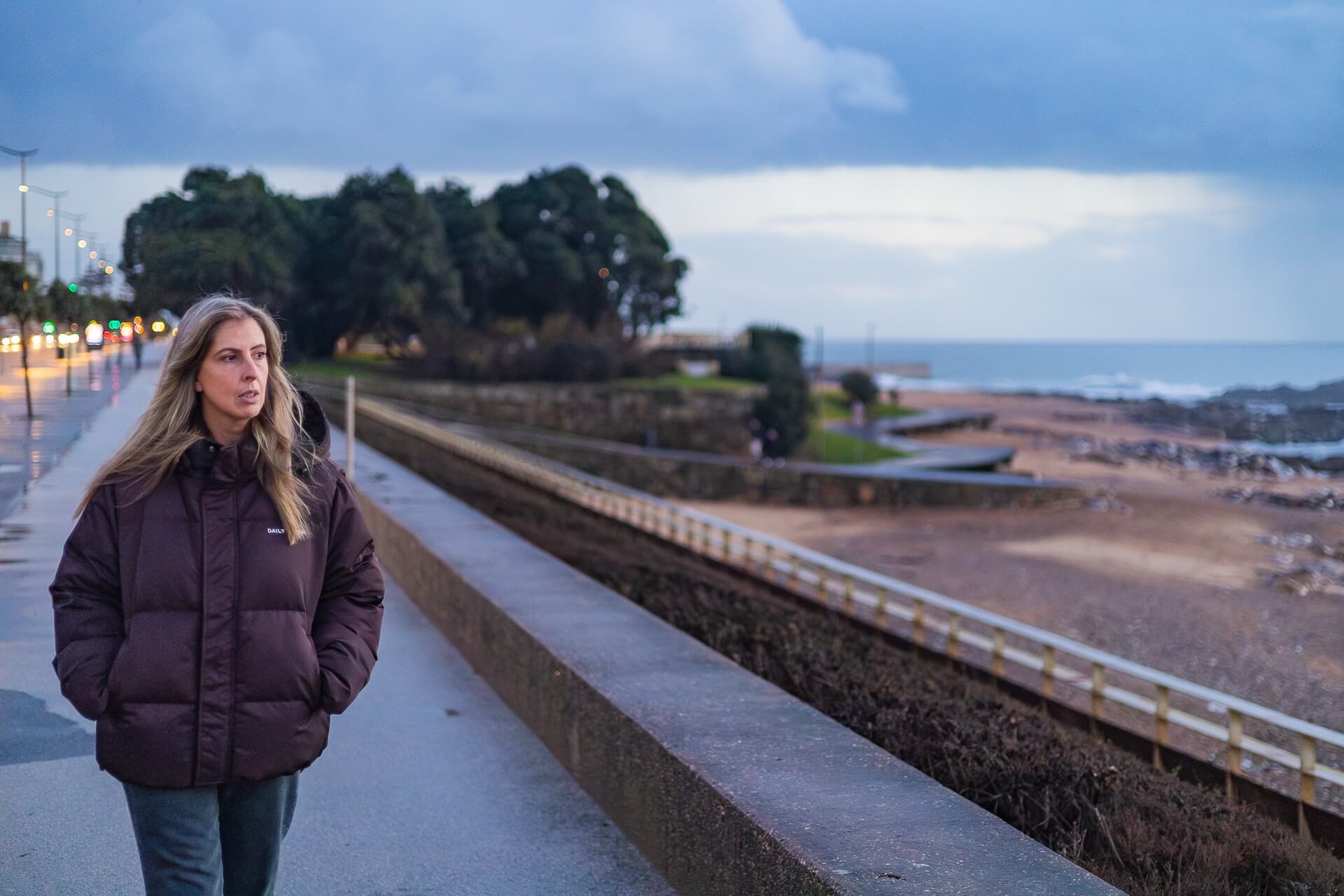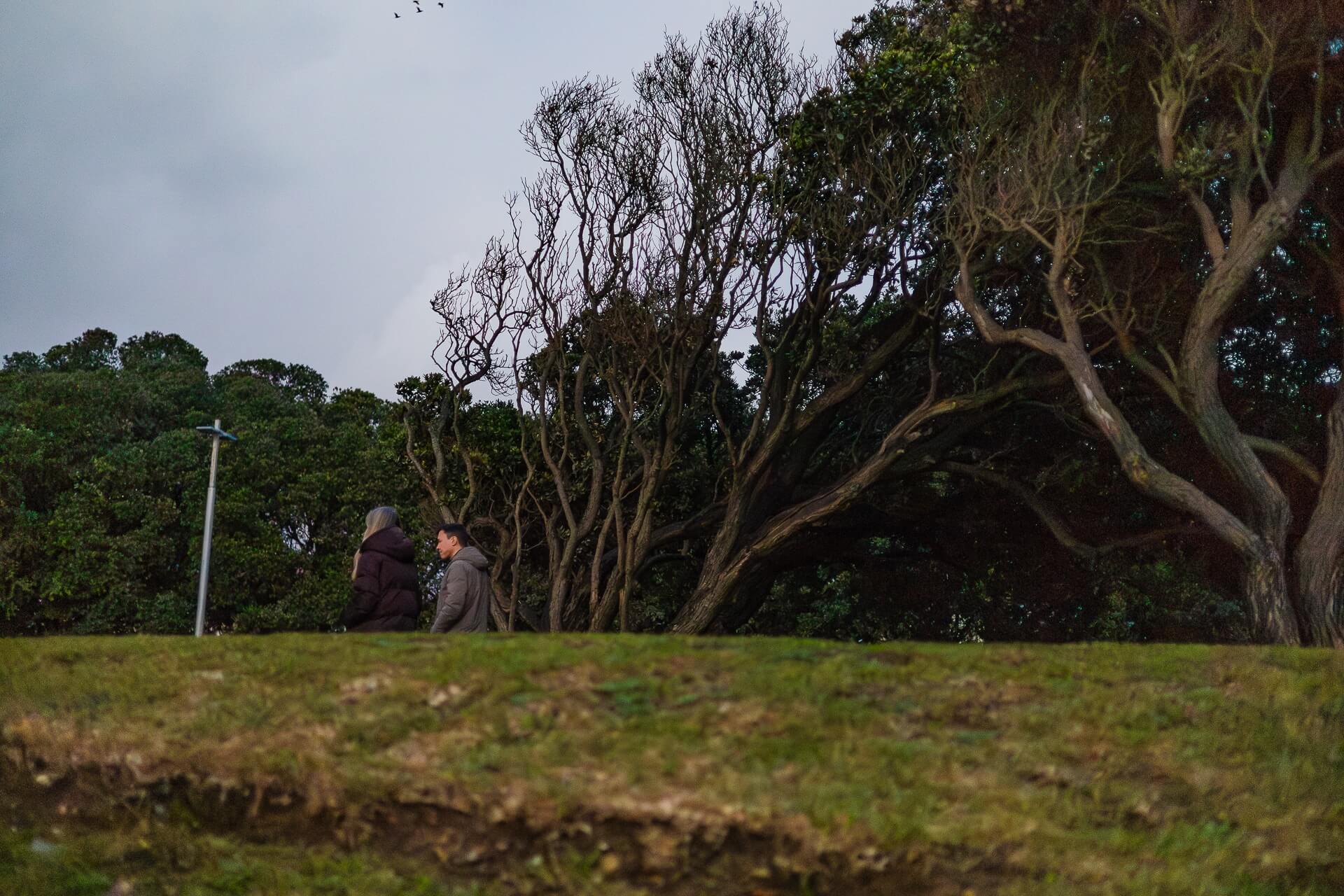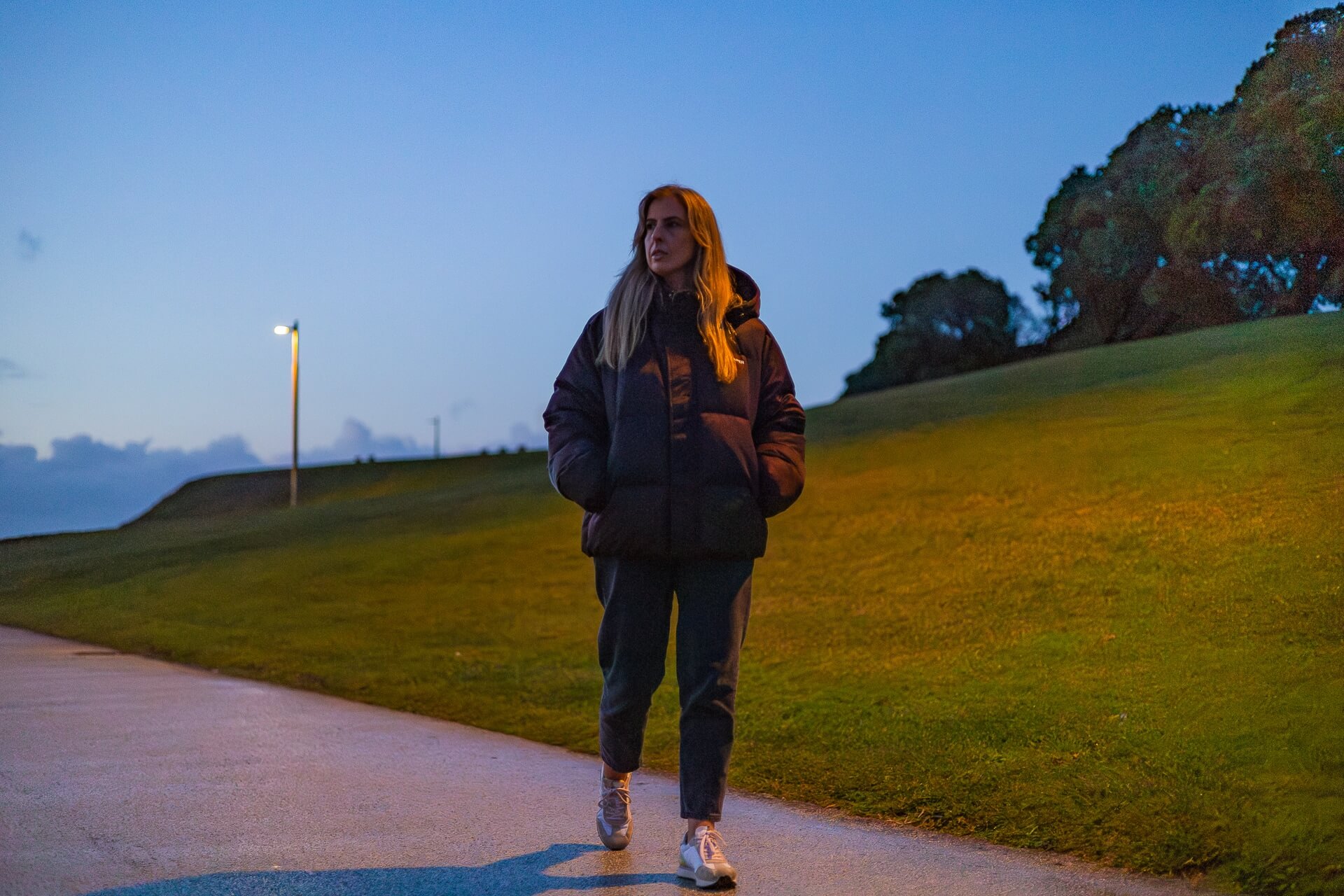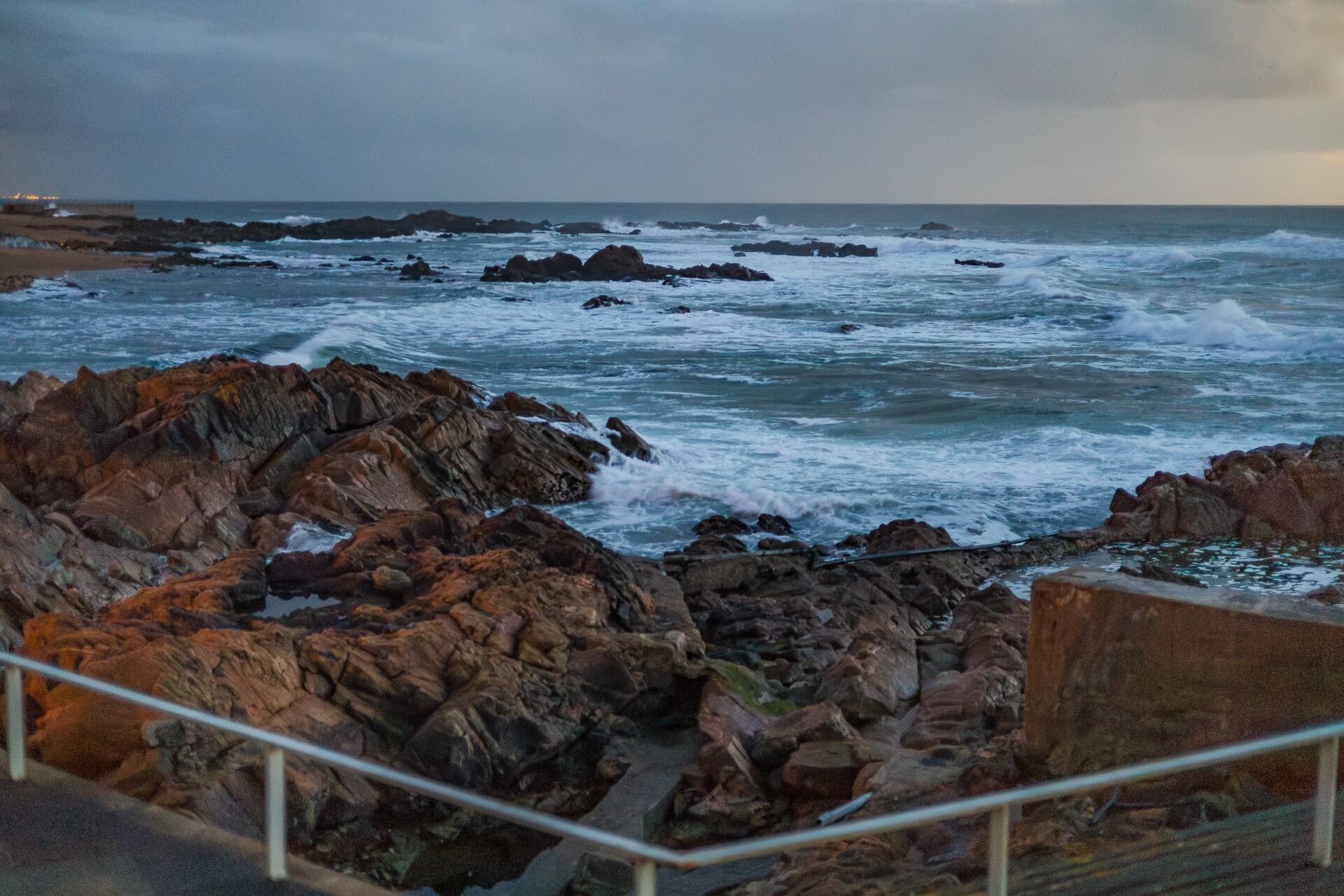Marta de Oliveira Ferreira: “The humanisation of processes will be more valued in the future”
Marta de Oliveira Ferreira: “The humanisation of processes will be more valued in the future”
In this edition of Out Of Office, we spoke with the CEO of Inovapotek, Marta de Oliveira Ferreira. This is the story of one of the founders of the first spin-off of the University of Porto, who started working in rented stalls and embarked on the adventure of entrepreneurship in October 2008, the month of the stock market crash. After 15 years, she is looking to triple the company's volume in the next three years but wants to do it step by step. In the meantime, she took off her researcher's "gown" and now puts on the CEO's suit, revealing that mindfulness is her secret to reconciling her professional and family life with two children, whom she met by chance and now applies to both aspects of her life. And what do UPTEC and Inovapotek have in common? A lot, their stories intersect umbilically, and this is where you can read it all!
What is Inovapotek?
Inovapotek is a CRO – Contract Research Organization, an entity that provides research and development, testing and testing services for the cosmetics industry, the pharmaceutical industry, medical devices and food supplements. What we do is use our knowledge to help our customers develop products that are safe, effective, innovative, compliant with regulatory requirements, and meet consumer needs. I have always liked applied research and, basically, it was here that I found my passion, which was, in fact, to be able to contribute to the development of new products which end up on the shelves of supermarkets, pharmacies or perfumeries, with some speed. Being able to help our client, contributing with all our knowledge from the days of university researchers, and then as Inovapotek 15 years later, is very good. It is a tremendous personal and professional achievement.
And how does the whole process unfold when the potential customer arrives at Inovapotek?
We can effectively transform our clients’ initial ideas into actual products on the market that respond to specific needs. From the development of the product in our laboratory to the preparation of all the stability tests, as well as all the tests to evaluate the efficacy and safety of the product and, in essence, to prove the claims of the products. We also have regulatory support and consulting support so that products can actually be put on sale in the market and then be on the shelves, in advertisements, in magazines, and so on, it’s a huge taste.
And how did it all start?
I’ve always enjoyed researching and working in this product research area. I started doing it while still at the University, in the Pharmaceutical Sciences course at the Faculty of Pharmacy of the University of Porto (FFUP). In the middle of the course, I started to do some research and product development work, at the time of a medicine, and then later, after college, I ended up working for a company that had a project to develop a brand of cosmetic products with thermal water. I was hired to develop the first Portuguese line of cosmetic products with thermal water. At the end of this project, I knew that this was what I liked to do and wanted to do. In 2008, I had some invitations to work in this area, but they were all far from here, in Lisbon or outside Portugal. Nobody could do anything here, and it was hard for me; it didn’t make sense. I knew there was a lot of knowledge here, many people with many skills, even installed in the colleges, to provide excellent service to the outside. Basically, the work I had developed so far had captured the interest of some entities, and so I thought, “Why not create a company to provide this work?”. It doesn’t matter if we are in Porto; we have very competent resources. Porto has a lot of skills, and it is right here that Inovapotek will happen, and it will happen from here to the world.
How thoughtful was that decision?
It came about relatively quickly. For some time, I had wanted to undertake, to develop a company, to do something, so much so that I took a course at ANJE, an advanced program in entrepreneurship and business creation. Since then, the bug and desire to do something have remained. I created business plans for two or three companies that didn’t happen, and then, very quickly, I created this fourth one where I could gather my knowledge.
Didn't the first three attempts deter you?
I really believed I would make it. I had two potential clients who wanted to work with me on some projects, so Inovapotek came up with that in hand, which is good (laughs), but I still need to figure out what it would be like next. Nowadays, the human and technical quality we have in Porto is undeniable, but 15 years ago, entrepreneurship was not seen in this way, and much of the talent created in Porto had to go abroad. So, it was something that gave me immense pleasure to have been able to do. Creating and giving jobs in this area to people who like to do what I would also like to have done, which at the time was not possible, is very good.
“15 years ago, entrepreneurship was not seen in this way, and much of the talent created in Porto had to go abroad.”
And did you start Inovapotek on your own?
Bruno Sarmento and I founded and are still the partners of the company. Bruno Sarmento is a professor, leads a research group at i3S, and was also in the Faculty of Pharmacy at the time, finishing his PhD, which is dedicated to the pharmaceutical area in developing modified-release systems. At the time, I said to him, “I know you’re more into academic research, but don’t you want to join me in this adventure? I think it could be interesting for us to create some synergies here”, and since then we have been founding partners of Inovapotek. He has never worked in the company directly; he has other activities more linked to the academic world, but he has other skills and knowledge that add a lot to our activity.
What were the early days of the company like?
We were born with nothing (laughs). We didn’t have a laboratory; we didn’t have a beaker at all. We wanted a partnership at the time, initially with the Faculty of Pharmacy of the University of Porto. It was challenging because, at the time, entrepreneurship was something that no one knew what it was, right? Now it’s very different, and thankfully! The University of Porto did an incredible job of developing this area, but at the time, 15 years ago, everything was still very much in its genesis. We were the first spin-off of the University of Porto, founded when the regulation was also being developed. It didn’t make sense for colleges to have costly equipment, knowledge and precious techniques, sometimes acquired by a particular project. Then they were sitting there without anyone using them, so my proposal to the universities was, “We have these projects, we have this work, we know how to use them, so I pay (laughs). I pay for one day, half a day’s work, for renting this equipment or workbench, and they let me use it.” And that’s how it happened; we had our first laboratory in 2011, and in those first years, we worked like this on half a meter of rented bench (laughs).
How many people are there now working here and in general?
We have about 20 full-time employees and several other employees who work with us freelance, namely doctors. We do many clinical studies with medical control, dermatologists, ophthalmologists, gynaecologists, and dentistry, who work with us on demand, depending on the work we have in progress.
How does your current business model work?
We have various types of projects and customers here. We have clients who actually want to launch a new brand and make something from scratch. They come to us with an initial idea, “I wanted to develop a brand with my name”, and we can, in the first instance, even provide some consulting work to organise the whole project, explain what they have to do, the different stages of the project, do all the R&D planning, help build the product briefings, the market positioning, and then we move on. We can do the project from A to Z, distinguishing us from competitors. Things evolve from the first briefing, which then turns into prototypes of that product that the client himself adapts, and we customise it to the client’s measure. After the prototype, we move on to stability studies, clinical studies, and the regulatory process; we help select the packaging and validate labelling, and the products are eventually produced and launched. We also accompany the first manufacture of the products.
And for those who already have brands established in the market?
These come to us because they often don’t have enough internal capacity or because they have very complicated projects and need more brains with the knowledge to try to find solutions to some problem with a given product. Others who come to us can range from medium-sized companies to the largest international players in the field of cosmetics, especially where brands look for laboratories to test products to prove their claims. When you see ads for anti-wrinkles, moisturisers, depigmenting, protecting the microbiome, etc., those claims have to be supported, or they should be scientifically supported, and the way to do that is by hiring laboratories like ours, which allow us to conduct clinical studies to prove these claims. These studies appear in advertising, with tiny asterisks saying, “product tested in an independent laboratory on 30 women and with the result of less x per cent of wrinkles”. We’re that independent laboratory (laughs). It’s a particular business area. Some multinationals also have centres that allow them to do this. Still, they outsource independent laboratories to provide the product with a more sustained credibility. We also have other types of customers and manufacturers outside Europe who want to import the products to our continent and need regulatory support to comply with what is required here. If not, we can supplement it with the necessary tests and do the regulatory process.
Are there any brands you've worked with, and what are the highlights? A well-known product that you were involved in developing?
I can’t (laughs)! For several reasons, one being confidentiality, this is very important in our activity. There are many brands and products that we are not allowed to advertise, and that were made by us, and to select the remarkable ones and, let us say, would be unfair to the others; I can’t do it (laughs).
“Only lunatic people would start a company like we did during the 2008 stock market crash”
Where does the name Inovapotek come from?
Bruno and I went to the Registry Office to register the company, and we thought that the name was not very important and that our idea would be differentiating enough. Still, we wanted an internationally pronounceable name. Because we come from this area, we thought of InovFarm, but that could no longer be registered, so one of the alternatives to Pharma was Apotek, which in several languages means Pharmacy, so it became Inovapotek.
How did this connection to UPTEC come about?
We came from the Faculty of Pharmacy of the University of Porto, and our knowledge and the genesis of Inovapotek came from there. It was there that we were developing work, so it happened naturally. We rented our first office at NET – New Companies and Technologies, an incubation reception centre, which greatly helped us in 2008. When we wanted to have the first space with a laboratory, that’s when we came to UPTEC. In the building where it was initially installed, it was possible to have a vivarium, there were laboratories set up, and the companies that had this need for access to laboratories went there, like us. We were there for about three years, more or less, and in 2011, we came here to the room where we are today.
In 2023, they completed 15 years of existence, as well as UPTEC. What are the main benefits you feel from being part of this community?
We grow up together, don’t we? UPTEC was also taking its first steps with a lot of will and the right vision. When we came here, we felt that we were surrounded by those who have the same vision as us, who also have the mind to make it happen, who have ambition, who persist, and who know how to chase Dreams; it is very inspiring and gives us the strength to make this path too.
In these 15 years, have there been any remarkable moments in your growth?
We were born out of difficulty, not only because of everything I’ve told you before, but because we founded Inovapotek in October 2008, in the middle of the stock market crash. Only lunatic people would start a company like we did during the 2008 stock market crash (laughs). But that’s what made us more resilient. Adversity is something we face with a smile and move forward. Later on, in 2010, our internationalisation process was already underway. We were at our first International Fair, in-cosmetics Global, in Paris. At this fair, we are every year, and it was absolutely fundamental for our recognition in the market, and to leverage our growth. It was also essential when we achieved something more common nowadays, but at the time, we were the first Portuguese company to achieve accreditation in France, within the scope of the crédit d’impôt recherche (CIR), another fundamental step to cement Inovapotek.
What's next?
The life of companies is made up of several stages. We are in a transformation phase, of changing a series of processes, models and tools in an internal program that we call MoveON. We are preparing the company for the next step. How we plan our growth will allow us to triple our current volume in the next three years. Our internal motto is “step by step, day by day”, and that is how we also see this growth process: sustained and safe, it characterises us. We never had outside capital or other types of investors involved; we wanted to do things on our own, step by step. We are also attentive to how Artificial Intelligence can contribute to optimising all our processes. Artificial Intelligence is part of a future that no one can take away from us anymore; we need to know how to use it best and take advantage of it.
At sea, or next to it... On land, or on the side of the road, "watching" the cars go by... Or in the air, discovering the app that would change your life...Mindfulness can be applied anywhere, and our interviewee seeks to influence everyone around her with the tools that have contributed to her success as a mother and entrepreneur.
Before you were CEO, who was Marta?
I’m 43 years old, was born in Braga, and was a very normal girl. Always very diligent, a very good student, and very straight. I really liked to study, not because my parents told me to, but because I have always had a great sense of responsibility. I liked to study so much that even my parents, especially my mother, scolded me for not studying anymore, saying that “it was even bad for my health” (laughs). I have always been very diligent, studious and participative in various initiatives. I was in the 5th, 6th grade and I was President of the European Club at school, I wrote for the school editorial, I organised theatres, I was always doing things. During the Gulf War, I did editorials, wrote stories for the school newspaper, and collected newspaper clippings. I always went to public school, and although I was very studious, I always had a lot of social life. I used to hang out with my friends often, and I was lucky that my parents didn’t have much of an argument not to let me go because I studied so much (laughs).
And after high school, how did you go to Pharmaceutical Sciences?
I never wanted to be a specific thing, but as I was a very good student, I was encouraged to go into Medicine. I applied for Medicine and didn’t get in (laughs). It was my first big disappointment. I was the last student not to go into Medicine because I had an average of 18.43, and the average was 18.45. For me, it was chaos because I wasn’t used to not getting everything I set my mind to at an academic level, and that’s how I ended up at the Faculty of Pharmacy because, by chance, I had put FFUP as a last option. At the time, there were only five Faculties of Medicine, and when it was time to put the sixth, someone said, “Put something there”, and that thing was the Faculty of Pharmacy, where I ended up by total chance (laughs). The truth is that if I had gone to Medicine, it would also have been a bit by chance because they encouraged me and not because of a sense of vocation. After the shock, I said, “Okay, here I go, and I’ll be the best in the place” (laughs). I remember verbalising this to a friend of mine. I really liked the course, the environment of the faculty, and the course itself. I realised the different valences, and I fell in love much more with this area of pharmaceutical technology, developing products in the area of research. I started working in the faculty laboratories in my free time doing some research work, which went well. It’s a good thing it did, isn’t it?
Going back to the present, what is it like to manage your professional life with your personal life?
I find this question very funny because, more than my hobbies, I have my second job: to be a mother of two children (laughs). So, my personal life is mainly dedicated to my family and to my two young children, and sometimes it’s more exhausting than my professional life (laughs), but it’s also fascinating. How do I reconcile these two worlds? It’s something that we’re all looking for, it’s something that I value a lot, and that I try to cultivate at Inovapotek. We have always had a policy of flexible working hours so that people can reconcile all aspects of life in the best way because we are not, and should not, just work. I come from a generation with a culture of “working too late, working too many hours is what working well is all about”, and it’s not at all. We at Inovapotek have never had a work schedule because I understand that there is a job that is mental work, that the head has to be well, and to be well, you have to rest the hours you have to rest. I defend this in the company as I defend it for myself, and I know that it is shared by many people with significant responsibility positions.
Do you know of many cases where this is a shared concern?
I am part of a network at IAPMEI called “Woman Leader Network”, which is very interesting. There are several businesswomen or people in high positions in companies, and they are all women. I learn a lot from them, too. Many of them have fascinating stories of professional development in companies. Still, they also have stories of not having been present at meetings with their children’s teacher at school, of not having had the Christmas party, or the Carnival party, and why? Because the life of a business owner is highly demanding, exhausting, with immense pressures, which naturally leads people to work at maximum activity. The problem is that as the years go by, things happen and, in many cases, they don’t realise it, and when they go to see it, the children are teenagers, they are already adults and a whole life has been lost or had not been accompanied. I don’t want that for myself, and I try to ensure that the lives of all those who work with me aren’t like that.
And amid all this, is there still time for Marta?
Currently, it is highly reduced in the middle of these two full-time jobs (laughs), so it was essential to me to have found mindfulness practices, which came into my life a few years ago and which give me very interesting tools to be able to better reconcile these two lives.
“Mindfulness teaches us to train our minds”
What does it consist of?
More than explaining, I’ll tell you how it all started. Because the story is funny, I was going on a work trip, and around 2015/2016, I was on a Virgin Atlantic flight between London and New York, and on those seat screens, I found an app called HeadSpace, which I started to explore and that’s where mindfulness was introduced into my life. It’s an internationally recognised application, more focused on mindfulness and meditation. It has a series of exercises I watched during the flight, which I found funny. That’s how it came into my life and is essential to me. The practice of mindfulness is nothing more than being able to focus, at a given moment, on our emotions and what we are feeling, called moments of mindfulness. It is to be able to be here, with you, and to be fully present, in this moment, in full. Right now, I don’t have my head thinking about what my children are going to have for dinner at night, or the rehearsal that’s going on in the afternoon, or what’s going on there with Joana from the lab.
That seems like a superpower these days (laughs).
Our mind can think about a thousand things simultaneously (laughs) and feel emotions with a series of active synapses. Mindfulness teaches us to train our minds. In the app, some videos amusingly illustrate this. One that I like a lot invites us to imagine that our head is a highway, where each car is the various emotions we feel and think about. I’m furious with this one because of that, and now here comes the car, angry with that one. Now comes the concern for the children. We walk in the middle of traffic, in the middle of the highway, angry or stressed about many things, and instead of wearing ourselves out in the middle of that traffic, what mindfulness invites us to do is to stop on the side of the road, get out of the car, and watch what’s happening without interfering, without judging, but watching what’s going on. It’s having techniques and ways to understand what’s going on in our mind at any moment. There are negative and positive emotions too, but stay quiet to watch.
And is it only in moments of relaxation that it is possible to distance yourself from thoughts and feelings?
Sometimes, everything to improve only takes a few minutes, and we come out from under the dark cloud. And this is learned. It’s practising mindfulness, and it can be daily; in everyday situations, I’ll have a coffee, but during that coffee, I’m looking at the trees outside, concentrating on my breathing, and I can clear my head; this is trained. I can completely clear my head of everything, and those minutes are often essential; they are a breath of fresh air, often to solve some problem. It can also be more prolonged, being in nature, walking by the sea, and it helps me empty my mind of everything else. Physical exercise also served, in the past, to clear this mind, but it had other types of limitations. Hence, these mindfulness practices help me to fill this lack with additional benefits because we are not stimulated throughout our lives to practice these types of mental exercise, only physical ones. There’s a lot of talk about the advantages of physical exercise. More attention should be paid to the benefits of mental exercise, managing emotions, awareness perception, and emotion perception. When you start to understand more about this, it’s absolutely fascinating.
Can you teach these techniques to those around you?
Yes, mindfulness has the potential to change several generations. There are some principles that I try to have with my children; when one of them throws a tantrum, I teach them to breathe. My two-year-old daughter, super tiny, goes to the corner and starts to take a deep breath (laughs). There are practices of mental exercise and management of emotions. Basically, this is linked to the importance of emotional intelligence that in your generation may not, but in mine, it was not given so much value; it is not what was sought to be cultivated; it was more the mathematical exercise, another type of intelligence. This, in fact, is taught. There’s an analogy that I sometimes use, stolen from a video of a teacher that went viral, and that I shared with my team, and that, just the other day, a collaborator used with me, I found very funny (laughs). If we take a glass of water and hold it for a few seconds, the glass of water is not a big deal. Still, if we have the glass in our hand for many hours, it will start to hurt, we will have a sore arm, and we will not be able to support the weight of the glass. If we think about our lives, our anxieties, and some problems we have to solve, we can see it as that glass of water, and we can realise that, sometimes, we have to put the glass down a little. And a while ago, we were in the middle of a problem, and one of my collaborators said, “Look, I’m putting the glass down a little bit” (laughs). I thought it was hilarious.
Outside of work, where do you usually practice mindfulness?
There are several places, but the one I like the most is by the sea. I lived a long period of my life by the sea, something that doesn’t happen today, and running or walking by the sea has always been, for me, super energising. Reaching the end of the day and contemplating the sound and force of the sea, for me, whether it was summer or winter, has always been very inspiring. I had many moments of “Inovapotekian” exhaustion, which I like to say jokingly, healed by the sea. But I also really like the mountains, I really like Gerês, I really like walking in the pine forest. Nowadays, I adapt these tours a lot to my children’s daily lives. They go by bike, and I go on my own; in my moment, I try to reconcile the two things; it’s a way of doing it. But it’s by the sea that I like to practice the most.
“I’m too solution-focused and too little on the problem.”
Has your crossover with mindfulness shaped the way you educate your children?
I hope so (laughs). The role of educating is a challenging one, and it carries a lot of responsibility. I usually say that I have many children because, in addition to these two – which are really children, I have many people in my charge and under my responsibility. One of the most rewarding things for me is to help many people’s personal and professional development. who collaborate with us and have been collaborating with us over the years. Some arrive, and others leave with more tools and more learning. We try to make them have personal development and not just technical-professional development. With my children, they are still very small. I don’t know what this will give. Still, I try to provide them with the best education I can in different aspects, sure that in the world of tomorrow, no one knows how it will be; everything changes very quickly. The most important thing is that they can live a whole and happy life, doing what they love most.
Are they the most indispensable for you?
Yes, my children and my family are absolutely indispensable to me.
Where do you see yourself in five years?
I don’t know what it is, but what do I expect? May the vision of transformation that we are forming at Inovapotek bear fruit. In the near future, I want to dedicate myself a little to my own professional training. I created the company when I was 28 years old, and coming from pharmaceutical sciences, everything I know about business management, organisation, project management, financial management, and much of what I know was making it happen. It was the result of self-learning and the development made by the experience, so I would like to have some time to do an MBA or dedicate myself to professional development. I also want to reconcile my family and professional life better and better, don’t I? Five years from now, I’ll be able to tell you if my kids are on the right track (laughs). Deep down, I hope to be happy.
And how do you see the world in five years?
It will probably be very different, and that’s something the last few years have taught us. We must learn and adapt to different circumstances and be in continuous development and constant change when it has to happen. In 15 years, we have had a pandemic, wars, and economic crises. Something that I value a lot in human resources and in the people who work with me is the ability to adapt to circumstances depending on what is happening in the world. Something that has been increasingly valued is the humanisation of processes. The humanisation of processes will be more valued in the future. We live in a highly global world with artificial intelligence, virtual realities, and machine software. Still, amid this scenario, I anticipate that, further down the line, what is more humanised will have a greater value.
Greatest virtue and greatest defect?
I usually say it’s a virtue and a defect because I’m always thinking about what’s next; the problem of the past for me is already solved. Sometimes, it’s still in resolution, but in my head, it’s already solved (laughs). But I want to look at it as a virtue, this quick ability to solve things or to find solutions. I’m too solution-focused and too little on the problem. But it can also be a defect because not all people think in the same way; not all of us have that capacity, and sometimes it is also necessary to stop for a while in the present moment to effectively give time for things to happen, and then move on to the next step.
Do you have a favourite word?
Perseverance. And I’ll tell you quickly that this is the word because the person who spoke to me a lot about the word perseverance was Eng. José Martins, from NET, said that the most important word in this area of entrepreneurship is this. Persist, persist, persist, and it’s a word that significantly characterises me. It’s a very important word for everything in life.
Is there a date specially engraved in your memory?
The 8th of October 2008, the founding date of Inovapotek (laughs).
In closing, tell me three things you want to do in life?
I’ve already told you about the MBA; I want to do that. I don’t know when in my life. Still, I hope one day to be able to do something in the area of social entrepreneurship, to be able to help others, to be able to have some mark on the path and development of someone or a community, in a very local logic, of proximity, impacting someone’s life. And to be happy. I really like what I do; I love my professional life, personal life, family life, friendships, and happiness is not necessarily easy to achieve. Still, the important thing is to enjoy each of these aspects as much as possible.
January 25th 2024
